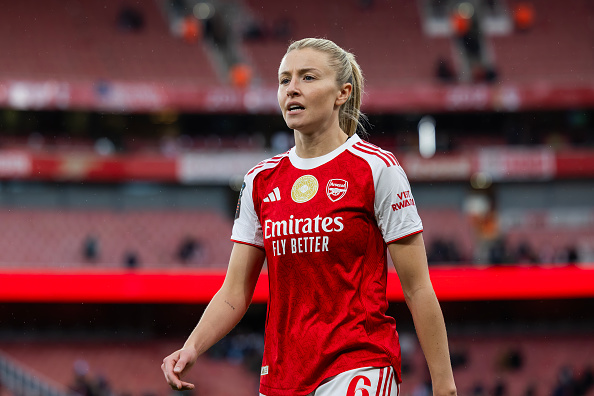12 player-manager pairings who REALLY fell out
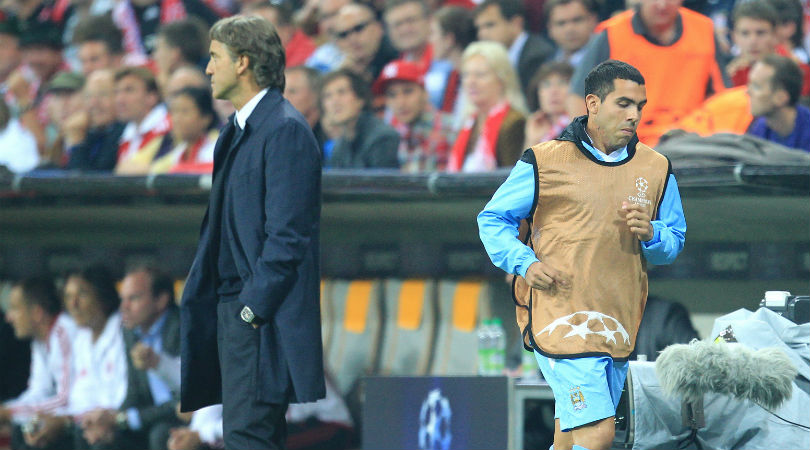
When clashes aren't confined to the pitch
It happens in workplaces around the world: even the dream job can be a nightmare when you don’t get on with your boss, and even the most respected manager comes up against a difficult employee every now and again. It’s all the more difficult when every minute is played out in front of millions, particularly in the testosterone-fuelled world of professional football where clashes aren’t always confined to the pitch and those involved are supposed to be on the same side.
We take a look at 12 examples of when things go horribly wrong between player and coach, with foul-mouthed tirades, a five-month exile and players refusing to celebrate with a team-mate – even when he’s just scored against their biggest rivals.
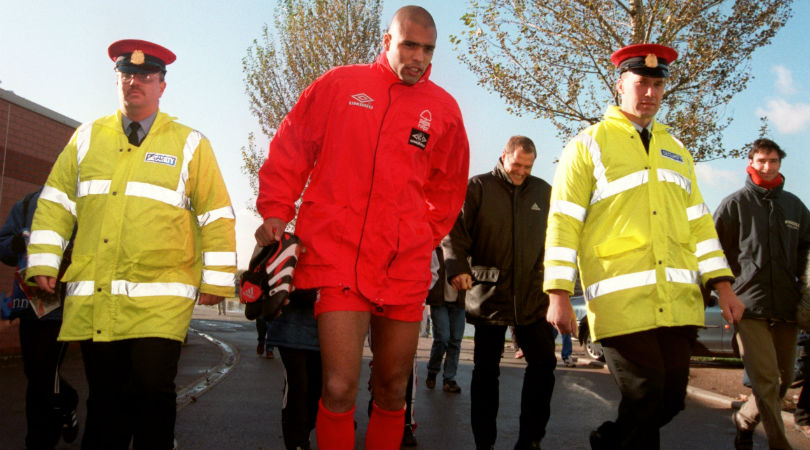
12. Pierre Van Hooijdonk and Dave Bassett
Van Hooijdonk was brought in by Bassett in March 1997 in an attempt to stave off relegation from the Premier League. It didn’t work, with the former Celtic man scoring just once as Forest failed to win in his eight appearances. They bounced back at the first attempt though, winning the First Division title the following season with Van Hooijdonk scoring 29 in the process.
The trouble started when he came back from the World Cup for pre-season training ahead of the 1998/99 season. Despite promises that Forest would strengthen to be able to deal with the demands of being back in the top flight, they’d actually sold Van Hooijdonk’s strike partner Kevin Campbell to Trabzonspor and allowed Colin Cooper to return to Middlesbrough. The Dutchman asked for a transfer, which was turned down. He disappeared until November and was largely shunned by his team-mates when he returned.
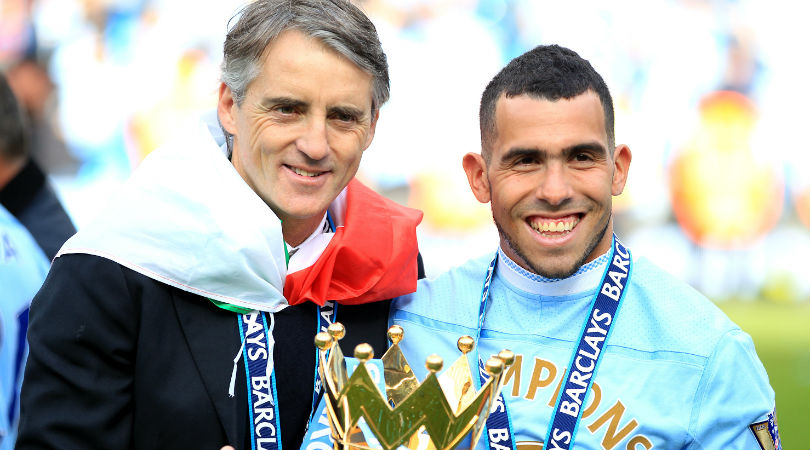
11. Carlos Tevez and Roberto Mancini
With City trailing 2-0 in a Champions League match at Bayern Munich, Tevez was summoned from the bench by Mancini – but the Argentinian striker simply refused to emerge. After being initially placed on gardening leave while the incident was investigated, he hot-footed it back to Buenos Aires where he infamously played golf for five months instead.
Following a big fine – reportedly up to £500,000 – and the withholding of a loyalty bonus, Tevez returned to the squad and helped City win the Premier League title before moving to Juventus in 2013.
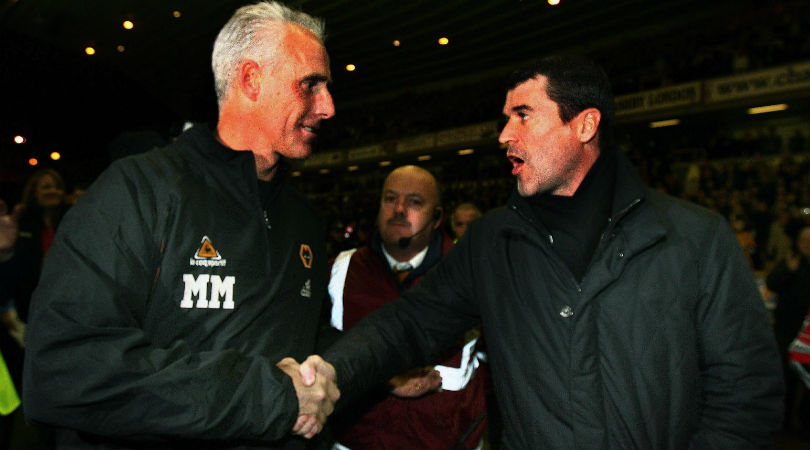
10. Roy Keane and Mick McCarthy
Keane was the captain of Ireland in the run-up to the World Cup in Japan and Korea in 2002. The team were preparing in Saipan ahead of the tournament and the Manchester United midfielder was reportedly unhappy with a number of things, including the team travelling in economy class while the FAI officials got the first-class treatment, the intensity of the training, the conditions of the camp and the players’ diet – with the players eating cheese sandwiches ahead of a qualifier with the Netherlands because there was no pasta available.
It all came to a head in Saipan, with Keane launching a 10-minute tirade at McCarthy, who promptly sent him home. Keane spent the summer walking his dog instead.
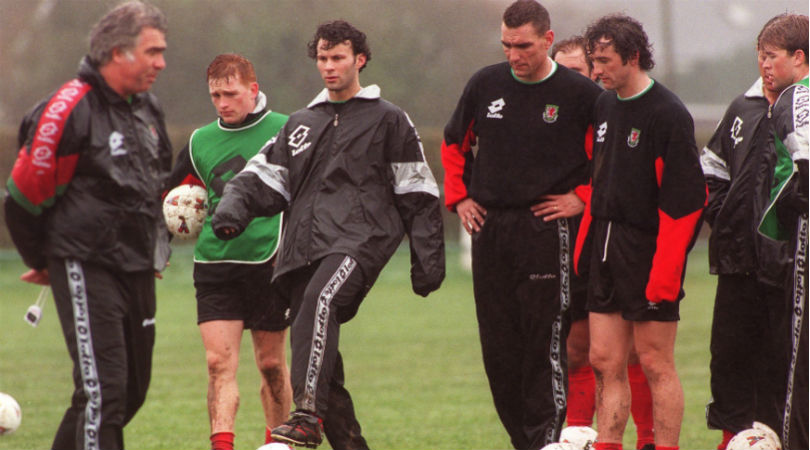
9. John Hartson and Bobby Gould
The two came to blows ahead of a World Cup qualifier against Turkey when Gould was in charge of Wales. Hartson was frustrated with the way Gould was managing the team, with the incident happening when he learned he wouldn’t be in the starting line-up for such an important match.
In his autobiography, Hartson described the incident as "embarrassing, weird, disturbing and totally undignified" whereas Gould laughed it off, insisting “it wasn’t as violent as people make out. It was rough because John Hartson is a big, big man and he is a tough character. It was bold of me to challenge him.” Indeed it was, with Gould appearing shortly afterwards with a black eye and scratched face.
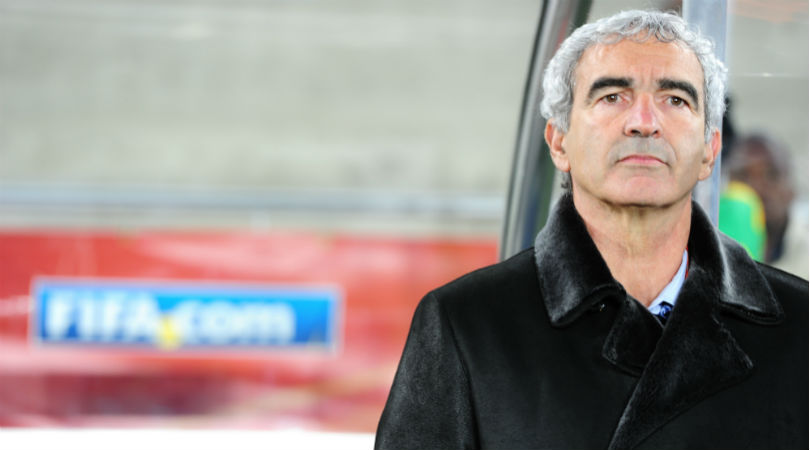
8. Nicolas Anelka and Raymond Domenech
Having squeezed controversially through the 2010 World Cup play-offs at the expense of the Republic of Ireland, France were tipped by some to repeat their 2006 showing and make it all the way to the final. What transpired, however, was nothing short of an unmitigated disaster.
Following a dour 0-0 draw with Uruguay, France capitulated 2-0 to Mexico. At half-time, eccentric coach Domenech rebuked Anelka for straying out of position, at which the striker called his gaffer a “son of a whore”. He was immediately subbed and, after refusing to apologise, sent home, sparking a training boycott by his mutinous team-mates – but it’s safe to say Anelka has no regrets: “I insulted a coach who the whole of France had already insulted, a coach who had never won anything apart from Ligue 2 and the Toulon tournament.” Ouch.
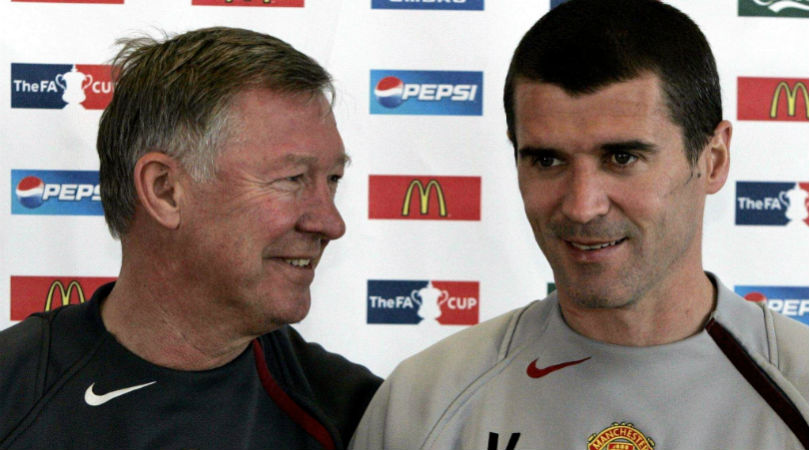
7. Roy Keane and Alex Ferguson
Under Ferguson, Keane won seven Premier League titles, a Champions League and a host of other trophies with Manchester United, captaining the club through its most successful period.
It ended just as spectacularly when Keane left the club by mutual consent in November 2005. He had been increasingly critical of team-mates during interviews with MUTV and was confronted by Ferguson, who was shocked by Keane’s reaction.
“What I noticed about him… was that his eyes started to narrow, almost to wee black beads. It was frightening to watch, and I’m from Glasgow,” Ferguson wrote in his autobiography. “I don’t see why he needed to say all those things, given the fact we’d won so much for him at United,” countered Keane, referring to David Beckham and Ruud van Nistelrooy as well as himself. “He doesn’t know the meaning of the word loyalty.”
Unsurprisingly, the two hotheads continue to give one another the widest of berths.
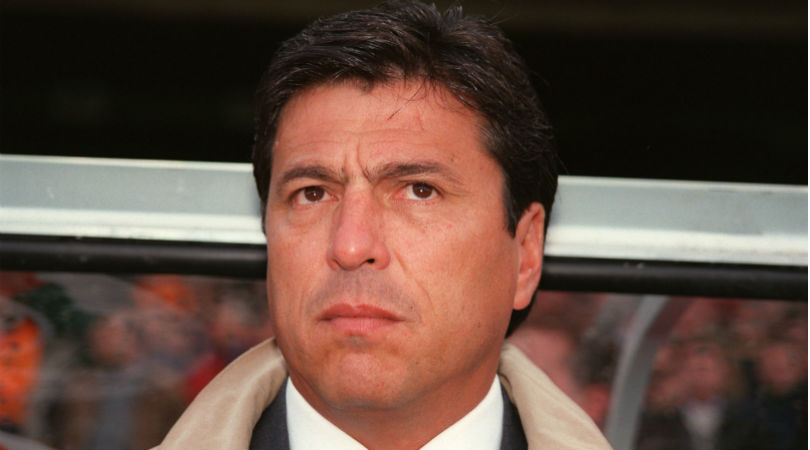
6. Fernando Redondo and Daniel Passarella
Passarella was the first Argentinian to lift the World Cup when he captained his country to success on home soil in 1978, becoming a bona fide legend in the process. A ferocious defender with an eye for goal, Passarella took his disciplined style with him when he took the Argentina job in 1994, including banning long hair and earrings, leading to confrontations with many of his more hirsute players.
"I was in great form," blasted midfielder Fernando Redondo, "but he had particular ideas about discipline and wanted me to have my hair cut. I didn't see what that had to do with playing football so I said no again."
Redondo therefore missed out on France 98 and the argument became vitriolic enough to include Diego Maradona and even President Carlos Menem.
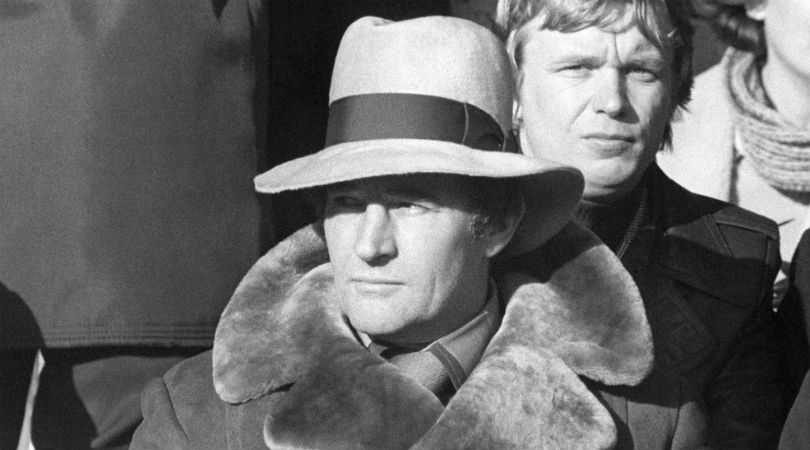
5. Peter Barnes and Malcolm Allison
‘Big Mal’ was fondly remembered as Joe Mercer’s flamboyant second-in-command during the glory years of the late sixties and early seventies when City won the league, FA Cup, League Cup and Cup Winners’ Cup. As good as he was as an assistant, it never worked out when he succeeded Mercer to the top job in 1972; Allison resigned within a year.
Following spells in charge of Crystal Palace, Galatasaray and Plymouth Argyle, he returned to Maine Road in the late 1970s insisting he was “looking forward to working with a group of homegrown players.” Yet two of those – the popular duo Peter Barnes and Gary Owen – were flogged to West Brom during the 1979/80 season in order to fund the purchase of Wolves midfielder Steve Daley for a British record fee of £1.4 million.
“I was very upset about what happened at Manchester City,” said winger Peter Barnes. “I thought that I was going to be part of the club’s future and I was sold.”
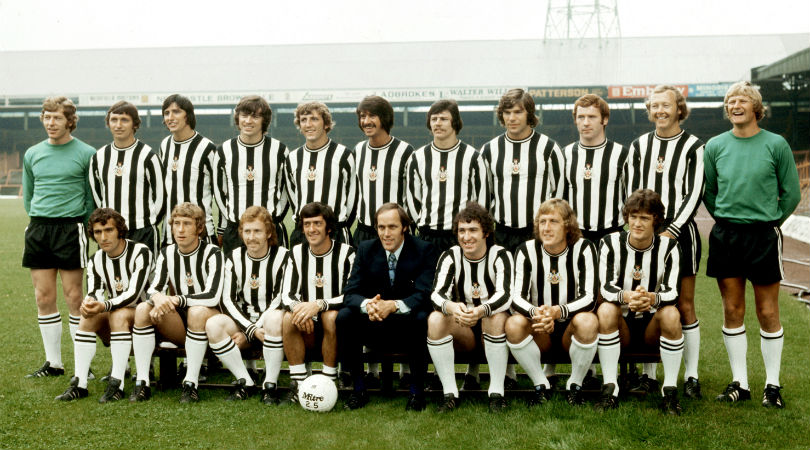
4. Malcolm MacDonald and Gordon Lee
‘Supermac’ ingratiated himself with the Toon supporters when he scored a hat-trick on his home debut against Liverpool in 1971. Over 250 games and 138 goals later, MacDonald was sold by Gordon Lee after a clash of personalities.
His card was marked after the forthright goal-getter had made it known that he wouldn’t have chosen Lee as Joe Harvey’s replacement in the dugout at the beginning of the season, leading to Lee barking “you’ll never be a good professional, MacDonald,” before flogging him to Arsenal at the end of the campaign. The duo have consciously ignored each other ever since.
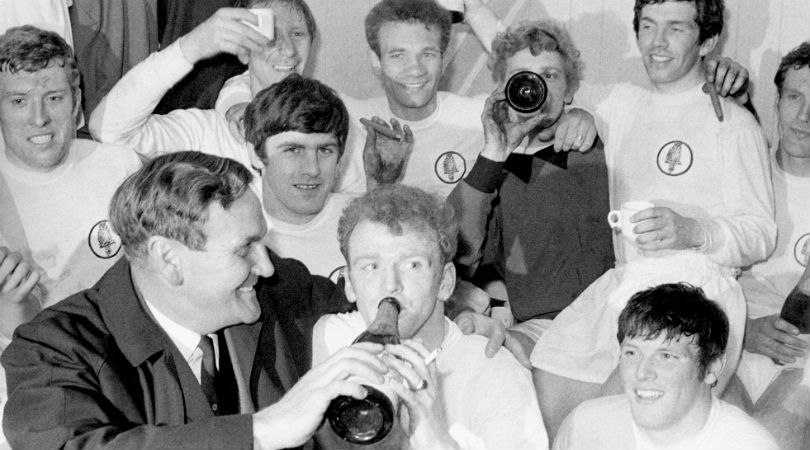
3. Gary Sprake and Don Revie
Don Revie was incredibly successful at Leeds United in the 1960s and 1970s, leading the Yorkshire club to every domestic trophy – and widespread criticism. Accusations had long been made about the club's actions but were usually derided as sour grapes – until goalkeeper Sprake became the first of his former players to speak out against him.
Sprake had long departed Elland Road when he spoke to the Daily Mirror’s Richard Stott in 1977 about Revie’s alleged bribery of opponents while he was in charge of Leeds. Others like Alan Ball, Bob Stokoe and Frank McLintock also claimed that opponents had been offered ‘sweeteners’ to take it easy during clashes with Leeds.
The accusations were always denied and never proven; Revie briefly sued the Mirror but dropped the case, while Leeds captain Billy Bremner successfully sued the Sunday People for repeating the claims. Nevertheless, shortly before Sprake's claims came out, Revie became the first England manager ever to walk away from the job, leaving the country to take a well-paying job as boss of the UAE – after selling the news of his resignation as a Daily Mail exclusive.
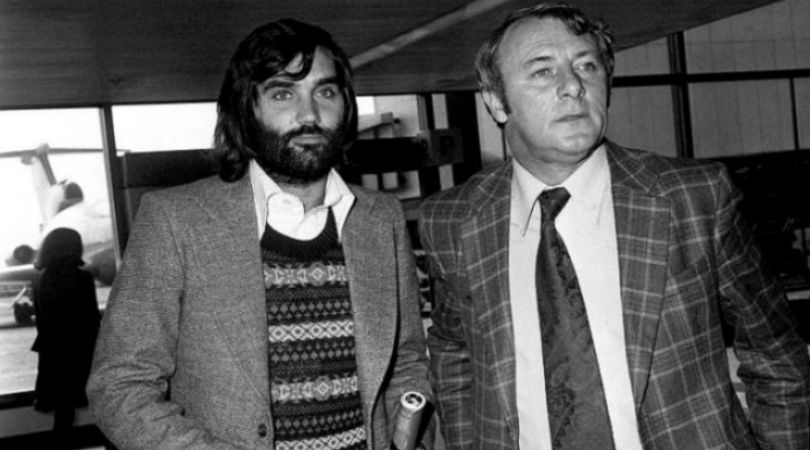
2. George Best and Tommy Docherty
By Best's account, Docherty once told him: “[As long as] you give your all when you train and make up the time later, it doesn’t matter if you miss the occasional training session.” When Best took him up on his kind offer by dodging training following a particularly heavy night on the sauce ahead of an FA Cup tie with Plymouth, he found himself swiftly dropped.
“Tommy Docherty lied to me,” claimed Manchester United legend Best, “and I wouldn’t trust him as far as I could throw him.” The Northern Irishman continued to criticise Docherty – usually in colourful language – in his after-dinner appearances in the years that followed.
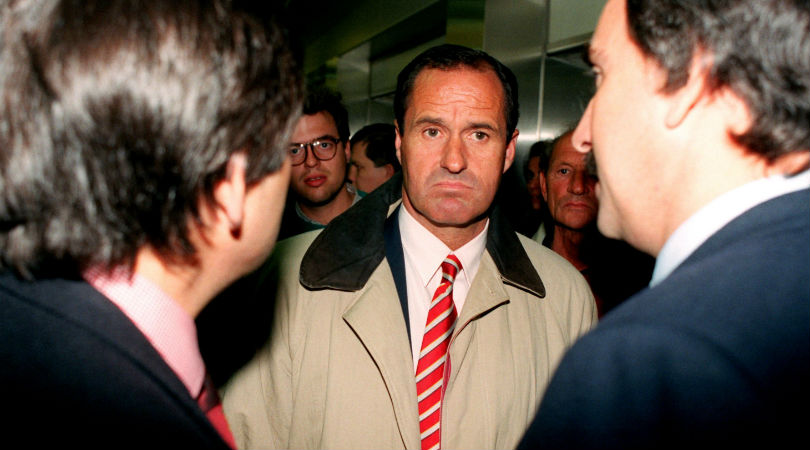
1. Anders Limpar and George Graham
It started off so well. Halfway through his first season in north London, boss George Graham claimed the Swedish winger was “the most in-form player in the country”. Despite Limpar’s form tailing off in the second half of the campaign, Arsenal won the title – but the Swede was never quite the same player again, flitting between the starting line-up, the bench and the reserves.
He was then sold to Everton in 1994, with player and manager barely on speaking terms. Limpar later likened life under Graham at Highbury to “living in Saddam Hussein’s Iraq… I was a prisoner.” Wisely, he tries to avoid his ex-boss whenever they attend Arsenal functions these days.
 Join The Club
Join The Club










